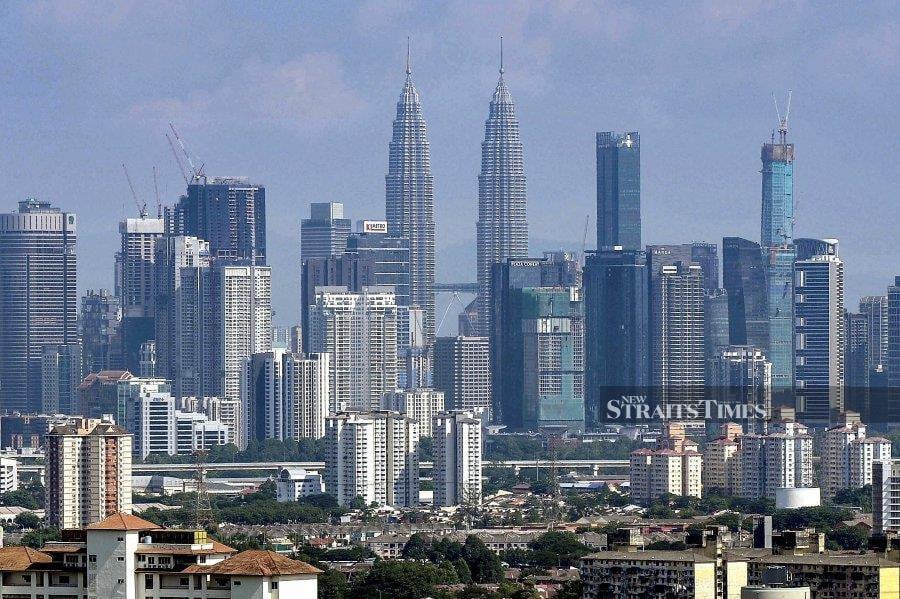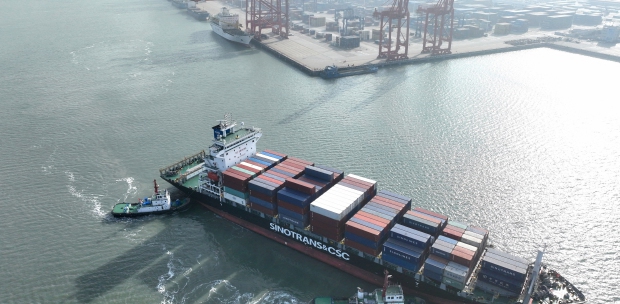In navigating the intricate web of global affairs, numerous nations grapple with the challenge of foreign influence meddling in their domestic concerns.
Within the dynamic landscape of the Association of Southeast Asian Nations (ASEAN), member countries increasingly find themselves ensnared in the power play as major global actors jockey for supremacy in the region.
While the intentions of Western powers are debatable, China emerges as a formidable player with unmistakable strategic objectives. While espousing the virtues of multilateralism and international trade, China's actions speak louder than its rhetoric. The unveiling of maps, ostensibly portraying a commitment to shared prosperity paradoxically signals a calculated move that could deprive ASEAN states of their rightful access to the South China Sea and the abundant resources contained within.
It is interesting to note that while Malaysia's premier think tanks are publicly funded. These intellectual hubs have displayed a notable lack of vigor in shaping policies. and dispensing expert counsel. Sadly, despite financial backing from the public, coffers, their performance in enlightening the public and offering strategic guidance to the government on navigating intricate and potentially perilous issues has been less than stellar.
Following the unveiling of the 2023 China Standard Map, none of our premier think tanks issued any public statement on how Malaysia should prepare itself and respond. While Malaysia is a small country in comparison to the superpowers, it is an exporter of valuable and indeed critical items, including rare earth minerals and microchips. Undoubtedly, our voice holds significance and carries weight in the broader discourse.
One must question whether these publicly funded think tanks have inadvertently overlooked the pivotal role they are designed to fulfill. Their conspicuous silence in the face of existential challenges, particularly the looming threat of Malaysia losing its exclusive economic zone (EEZ), raises concerns about the potential disastrous consequences that could unfold.
While fully acknowledging and appreciating the substantial role that China plays in Malaysia's international trade and economic development, it is imperative that such engagement adheres to the oft-repeated "win-win" mantra echoed by Chinese officials.
This raises the question : How can this be deemed mutually beneficial arrangement when Malaysia stands on the brink of losing its exclusive economic zone (EEZ), and the trusted strategic institutes responsible for policy formulation remain mum? The essence of a "win-win" collaboration demands a closer examination amid the potential losses incurred.
Prime Minister Anwar Ibrahim himself has advocated for Malaysia and ASEAN to forge an independent trajectory. However, for this aspiration to materialise, Malaysia and its neighboring nations must safeguard against the undue influence on their societies, think tanks, academia, and media. It is imperative to prevent any form of "capture" that could compromise the autonomy necessary for charting a distinct and self-determined course in the geopolitical arena.
While investment and trade are welcome, elements that put Malaysia's sovereignty at risk must be opposed at every turn. There must be transparency, check and balance and due diligence to ensure that doing business with our largest partner does not come attached with unwanted strings. We could not afford unwarranted entanglements or compromises that could jeopardise our national interests.
While there may be behind-the-scenes plans and strategies aimed at safeguarding Malaysia's interests in relation to China, their effectiveness remains limited if they are not accompanied by public assurances from those entrusted with this responsibility. The value of these efforts diminishes further if they are not coupled with proactive measures to raise public awareness. Transparent communication and public discourse are essential components in ensuring that the public is informed and reassured about the actions being taken to protect the nation's interests.
While this piece was being written, Wisma Putra issued a press release on the "Elevation Of Bilateral Relations Between Malaysia And Japan To Comprehensive Strategic Partnership". Both the leaders of Malaysia and Japan confirmed their intention to strengthen further cooperation in five key areas, namely Peace and Security Cooperation; Continued Engagement at All Levels for Economic Prosperity; Science, Technology, Innovation and Environment; Society, Cultural and People-to-People Exchange; and Regional and Global Cooperation.
Since both leaders confirmed their commitment to further expanding and deepening cooperation between the two countries through a Comprehensive Strategic Partnership. It is hoped that this will pave the way for co-creating the future of Indo-Pacific based on trust, in the grand scheme of global politics and power play. Establishing a system of alliances and strategic counterbalances.
In the final analysis, Malaysia and its people must navigate the intricacies of these complex geopolitical realities with a clear-eyed understanding, avoiding any attempt to obscure the truth or manipulate perceptions. Transparency and awareness are crucial to ensuring that the nation can make informed decisions in the face of these challenges, rather than being misled or deceived. In essence, our eyes must remain wide open, not with the wool pulled over them.
*The writer is a Senior Consultant with Global Asia Consulting (GAC) and was previously a senior researcher at the Malaysian Institute of Economic Research. The opinions expressed are his own





